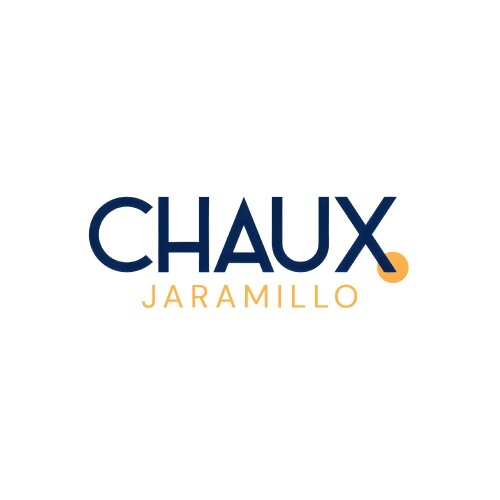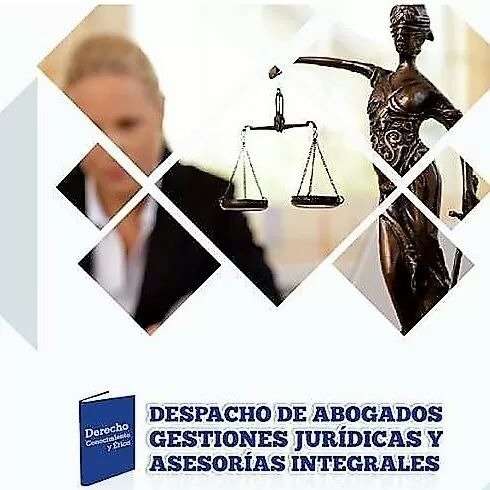Best Bankruptcy Lawyers in Colombia
Share your needs with us, get contacted by law firms.
Free. Takes 2 min.
Or refine your search by selecting a city:
List of the best lawyers in Colombia
About Bankruptcy Law in Colombia
Bankruptcy law in Colombia is designed to provide both individuals and businesses facing financial distress with a legal framework to address their debts and work towards regaining financial stability. The process allows for restructuring debts with creditors through conciliation or, if necessary, proceeding to liquidation. The law governing bankruptcy in Colombia is primarily defined by the Colombian Insolvency Regime, which is overseen by the Superintendency of Companies.
Why You May Need a Lawyer
Bankruptcy proceedings can be complex, and individuals or entities facing financial difficulties may require the guidance and support of a legal expert for several reasons:
- Understanding the eligibility criteria for bankruptcy and the options available.
- Assisting with the preparation and filing of necessary documentation.
- Negotiating with creditors to potentially reduce debts through conciliation agreements.
- Advising on the implications of liquidation, if restructuring is not feasible.
- Ensuring compliance with all legal requirements to avoid penalties.
Local Laws Overview
The insolvency laws in Colombia focus on either reorganization or liquidation. The reorganization process is intended to help debtors restructure their debts and continue operations. Key aspects include:
- Reorganization Proceedings: Allows businesses to reach an agreement with creditors to modify the terms of debt repayment.
- Clawback Provisions: Prevent preferential treatment of certain creditors by enabling the recovery of payments made before bankruptcy proceedings were initiated.
- Priority of Claims: Establishes the order in which debts will be paid during liquidation.
- Role of the Promoter: Appointed by the Superintendency to oversee the reorganization process and facilitate negotiations.
Frequently Asked Questions
What qualifies someone to file for bankruptcy in Colombia?
In Colombia, individuals or businesses can file for bankruptcy if they are unable to meet their financial obligations and meet the specific criteria set out in the Bankruptcy Law, including proving insolvency status.
What are the differences between reorganization and liquidation?
Reorganization aims to restructure debts to allow the continuity of the business, while liquidation involves selling assets to pay off debts and closing the business.
How long does the bankruptcy process take in Colombia?
The duration can vary significantly based on the complexity of the case and type of procedure, but it can take several months to years, especially for complex reorganizations.
Can individuals file for bankruptcy, or is it only for companies?
Both individuals and companies can file for bankruptcy under the Colombian insolvency regime. However, the processes and outcomes may differ.
What is the role of the Superintendency of Companies?
The Superintendency of Companies is the regulatory authority that oversees bankruptcy proceedings, ensuring that they are conducted properly and efficiently.
Are all debts discharged in a bankruptcy process?
Not all debts may be discharged. Some, such as child support or certain tax obligations, might still need to be settled.
Is there any risk to personal assets in a business bankruptcy?
If a business is a legal entity separate from the owner (like a corporation), personal assets might be protected; otherwise, personal assets can be at risk.
Can negotiations with creditors be done without going to court?
Yes, the reorganization process encourages negotiation and settlement with creditors outside the court to avoid lengthy litigation.
What happens if a reorganization plan fails?
If reorganization fails, the proceedings may shift to liquidation, where the debtor's assets are sold to pay off creditors.
Can bankruptcy decisions be appealed?
Yes, decisions can be appealed through the appropriate legal channels within the Colombian judicial system.
Additional Resources
For more information or assistance, individuals and businesses can reach out to the following:
- Superintendency of Companies: The government body overseeing corporate matters including bankruptcy.
- Chambers of Commerce: They provide resources and guidance for businesses facing financial distress.
- Legal Aid Clinics: Offer legal services to those who cannot afford private counsel.
- Bankruptcy Lawyers: Seeking expert legal counsel specialized in insolvency and bankruptcy can offer personalized advice and representation.
Next Steps
If you need legal assistance in bankruptcy, consider the following steps:
- Consult with a specialized bankruptcy lawyer to evaluate your situation and explore the options available to you.
- Gather all necessary financial information, including debts, assets, income, and expenses, to provide to your legal counsel.
- Prepare for potential negotiations with creditors by understanding your financial position well.
- Contact the Superintendency of Companies for guidance on the official procedures and requirements.
- Attend all scheduled legal appointments and court proceedings as advised by your lawyer.
Understanding your rights and responsibilities under the bankruptcy law is essential. With the right legal guidance, you can navigate the complexities of bankruptcy proceedings and work towards a favorable outcome.
Lawzana helps you find the best lawyers and law firms in Colombia through a curated and pre-screened list of qualified legal professionals. Our platform offers rankings and detailed profiles of attorneys and law firms, allowing you to compare based on practice areas, including Bankruptcy, experience, and client feedback.
Each profile includes a description of the firm's areas of practice, client reviews, team members and partners, year of establishment, spoken languages, office locations, contact information, social media presence, and any published articles or resources. Most firms on our platform speak English and are experienced in both local and international legal matters.
Get a quote from top-rated law firms in Colombia — quickly, securely, and without unnecessary hassle.
Disclaimer:
The information provided on this page is for general informational purposes only and does not constitute legal advice. While we strive to ensure the accuracy and relevance of the content, legal information may change over time, and interpretations of the law can vary. You should always consult with a qualified legal professional for advice specific to your situation.
We disclaim all liability for actions taken or not taken based on the content of this page. If you believe any information is incorrect or outdated, please contact us, and we will review and update it where appropriate.
Browse bankruptcy law firms by city in Colombia
Refine your search by selecting a city.















